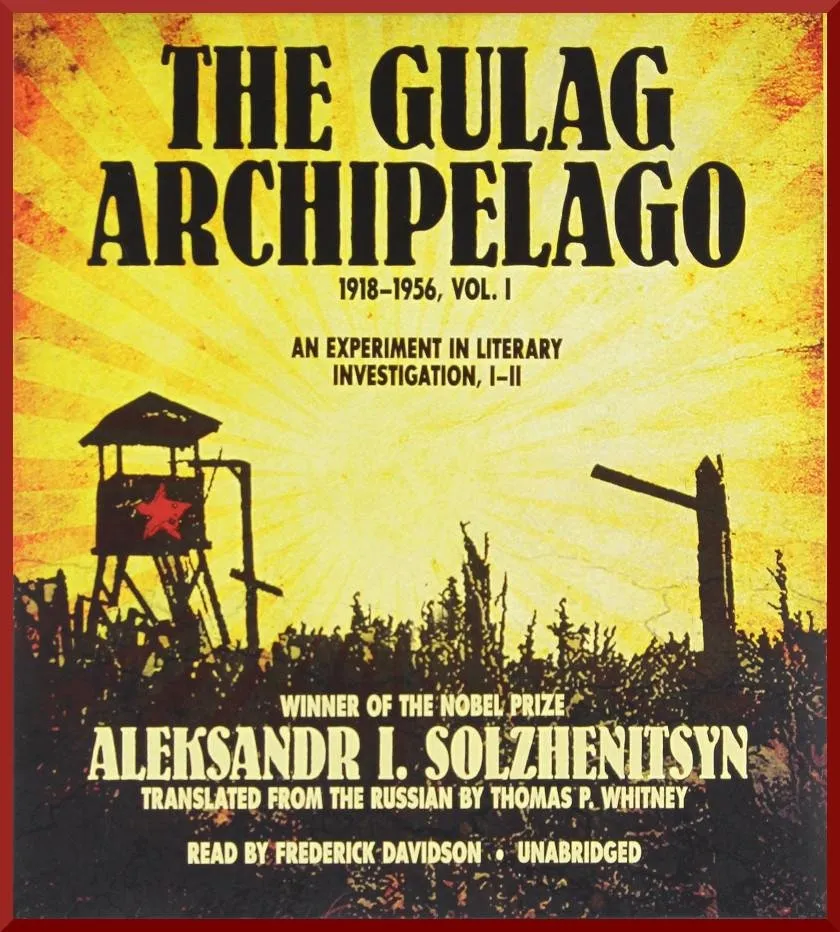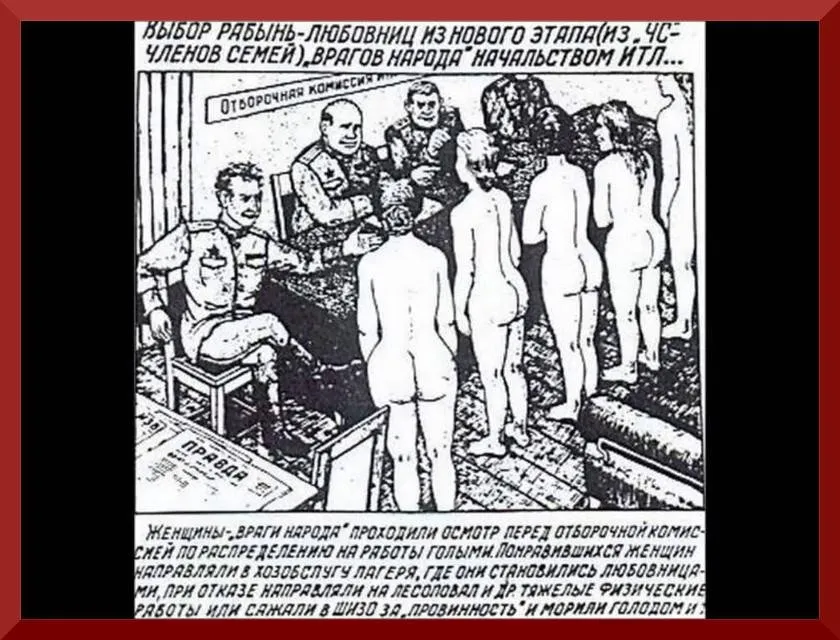It's been a while since I read a book that changed me. My first (can you ever forget your first?) was White Fang by Jack London. I read that as a very young child. The anthropomorphised wolf-dog kindled within me excessive feelings of empathy for creatures. To this book, I endow partial blame for my 17 years of vegetarianism. Another was Michael Shermer's Why People Believe Weird Things which helped me shake my shame of being atheistic. Also, If This is a Man by Primo Levi which was my first ever glimpse into the horrors of concentration camps during WWII.
I've read a lot of books since but this one has to be mentioned. The Gulag Archipelago is one of the most incredible books I've ever read. By this, I don't mean the author had a really good grasp of the grammar or worked in a few great plot twists. No. This is non-fiction and his mastery of language goes without saying; he won the Nobel Prize in Literature. I say this because I've never felt so close to the truth of humanity and inhumanity. This is probably the most honest thing I've ever read.
We know when we're being spun a story and we know when we're gazing into the abyss. This book was the latter. Solzhenitsyn witnessed and experienced suffering beyond our wildest nightmares. I'd say he's also experienced a transcendence beyond that of any martyr. And he's pissed off. He was sent to the Gulags for the crime of writing a letter to a friend who was critical of Joseph Stalin. After his imprisonment, Solzhenitsyn was later exiled from his country.
Years of captivity and denial of his very humanity stripped away all to the point where he had nothing left but bare existence. First were his possessions, family, friends, community, career, freedom. Then came the trust of others. Next to go was the ego. Finally, meaning. Taken back to the bare bones of survival, there was no more pretence, just naked being and the burning need to share the stories of those who had suffered or perished alongside him.
This work is more than mere remembrance; it begs us to be aware, to notice, to learn. I felt a great foreboding whilst reading this, one that shakes me to my core. Already the seeds of ideology are taking root and I'm scared. Anyway...
Solzhenitsyn originally composed this magnificent work in verse, during captivity, in his head, to enable him to memorise it all! Can you imagine memorising hundreds and hundreds of pages of prose? I can barely remember a short shopping list. So important was it, to him, to recount what had actually happened, to challenge the propaganda, that he bent his mind to this epic feat and I feel it is only just that we honour him for doing so.
The history of the Gulags and the dangers of rampant and unfettered ideology serve as a warning to future generations. We are, as humans, capable of the most extreme depravity. No more so was this realised than in the Gulag.
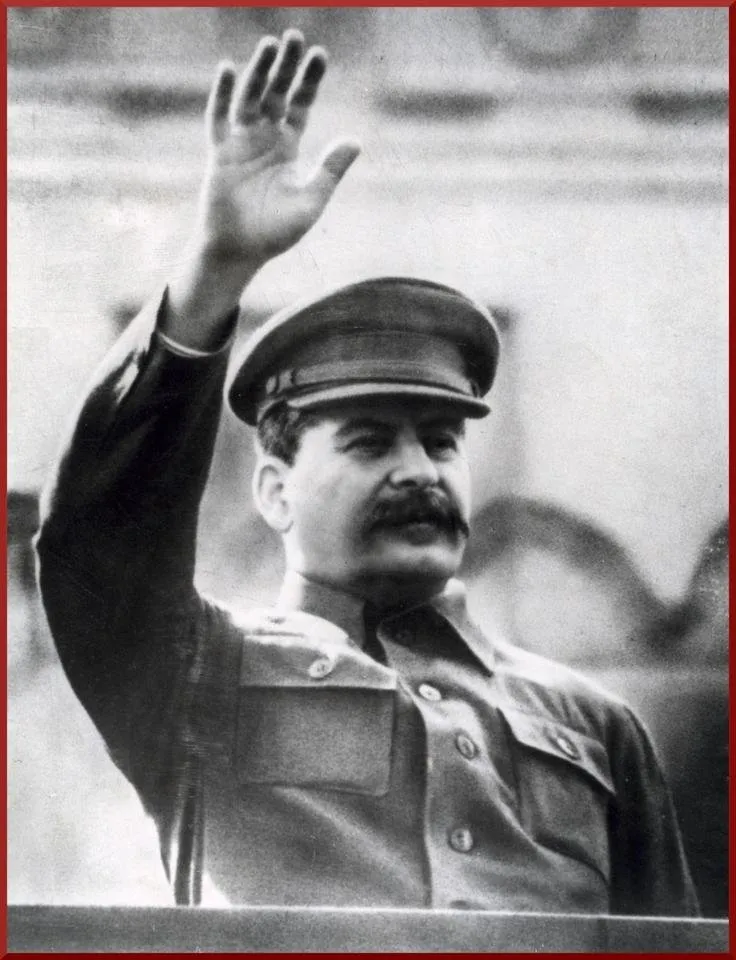
Joseph Stalin
But, before anybody experiences the Gulag, there is the fear. Citizens in Stalin's Russia were in fear of offending the Dear Leader, whilst obliged to voice their love and adoration of Him. They were in fear of their own thoughts and afraid to voice them in front of even their closest family members and friends. Everybody was listening and everybody was afraid. Even rolling one's eyes at the wrong moment could land one in trouble.
So, what crimes could have you sent to the Gulag?
There were numerous examples but the ones that stood out for me were the peasants following the grain truck as it left the fields. These poor starving people would scrabble around in the dirt tracks left behind by the vehicles that transported their harvest for the communal good, and gather stray grains that had fallen from the lorries which would otherwise have rotted where they fell. Gathering these grains for personal use was considered theft, a crime against the state, and resulted in a stretch of time in the Gulag. Maybe five or ten or twenty-five years, depending on what else they could pin on you.
There was another unfortunate man, a craftsman, who'd made the mistake of hanging his jacket on a statuette (of Stalin) while he finished off some woodwork. Others committed the crime of worshipping a god or were caught giving a sideways cynical glance in response to sycophancy.
The officials could raid your home at any time, turning everything upside down in their efforts to find something to use against you. One family, recently bereaved of their beloved child, watched on, silent and impotent, as officials upturned the child's open coffin, dumping the small corpse onto the floor to search for incriminating evidence in the shroud. These same officials would then, like vultures, pocket whatever they wanted for themselves.
If you were picked up for questioning, you were soon to sign a confession. And sign it you would! But that wasn't the worst part. After admitting your guilt you were ordered to provide names of co-conspirators. Your interrogators were relentless. Often, the poor victim would be tortured until he had, in extreme agony, gasped out the names of friends, co-workers, family. Anything to put an end to the pain.
What would you say if someone were slowly crushing your testicles beneath their jackboot until they popped, or beating you senseless with a baton. Their methods were surgical. They knew that to beat a prisoner's undernourished skinny buttocks would excite the sciatic nerve causing the victim to experience excruciating pain, every nerve fired so that it felt as though one's very brain was exploding.
What of the long journeys, crammed into railway cars, food and drink withheld because, well, you'd only need to piss or shit if you were given any? And if you did need to go it would be under the resentful gaze of an official, hurrying you because there were plenty others crying to relieve themselves. How you longed to be at your destination only to find it to be even more hellish than the journey.
What about the standing torture where you'd be placed in a space so narrow one could not sit down? The only respite would be to rest one's knees against the wall to ease your screaming feet. But even then you could not close your eyes. Sleep was denied. And the lightbulb burned bright, 24 hours, day after day. Many days would be spent in these cold, damp standing places with round-the-clock watch, with beatings thrown in for good measure.
Women were toys for those officials. New inmates would be paraded, naked, under the watchful and lascivious gaze of officials who would decide amongst themselves which 'lucky' girl would be given the opportunity to share his bed. It would, after all, be better and more comfortable than the cells. And what of those women who were openly and publicly raped in full view of other prisoners? Sport, entertainment. Officials made no attempts to hide their activities. How desperate would a woman have to be to swap her meagre bread ration for hair dye in a last ditch attempt to hide her advancing age and remain relevant or useful in some pitiful way?
What of the crowded cells in which it was impossible to fully lie down, huddled on the bare floor with strangers half on top of you. How could one sleep when devoured by bedbugs, covered in blistering sores caused by these cramped and unhygienic conditions? Who could ever imagine what it would be like to realise the person lying next to them had just died by witnessing astonished head lice frantically scampering across his face?
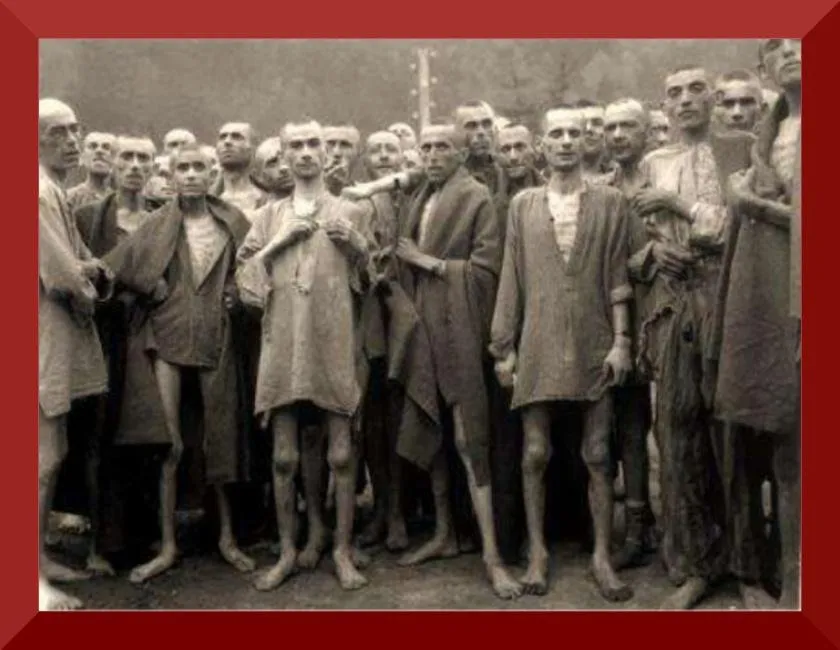
Image Source
And the starvation? Tiny rations of bread and watery gruel coupled with backbreaking 15-hour work days, descending with ravenous hunger on the corpse of a fallen horse. What can a body endure, let alone the mind?
What of those worked to death, in the frozen forests? Strong young men in their prime, huddled back to back in their hypothermic death throes. Proud men, doing their best.
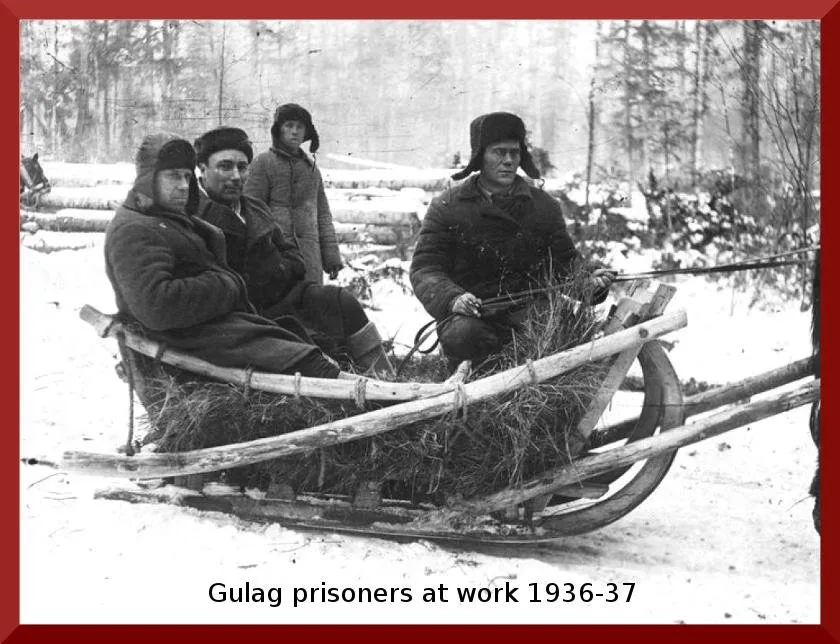
What did this do to decent people? Those millions who fell prey to the system? Did they remain strong in their humanity? Could you imagine a pack of teenaged prisoners knocking over an old man and stealing his meagre ration? Can you imagine their response when he pleas to them for mercy. What do they say? 'Why moan? You'll be dead soon anyway.' Then they eat his ration. You die today. I die tomorrow. Might is right.
But it's not all misery. There is triumph of the human spirit. Enough is enough. Rebellion. Escape attempts. When they are so broken and crushed that all they have left is indignation and the right to die on their own terms.
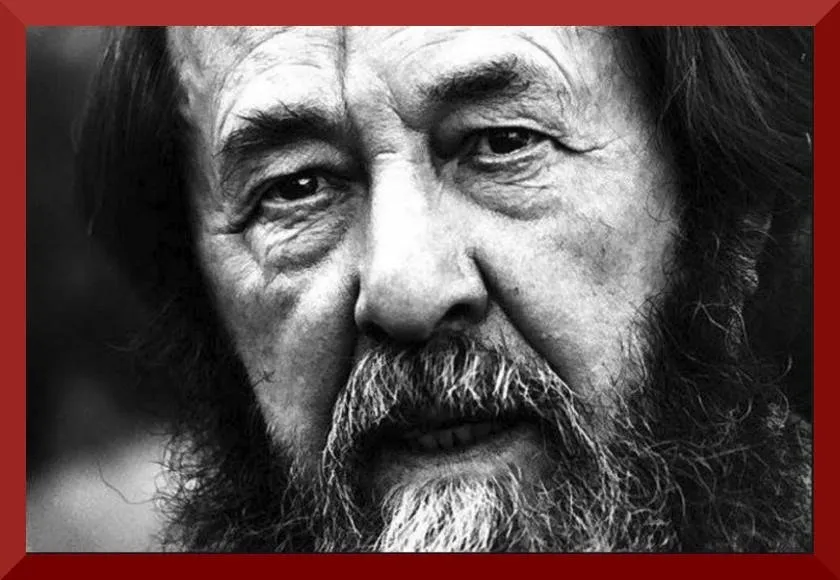
Aleksandr Solzhenitsyn. Image Source
This happened within the last hundred years. That's not so long ago – our grandparents' or great-grandparents' generation. We're still the same stock and species. Could you commit these atrocities? Not I, you may say. But why not you? What makes you so different? The answer, if we're to learn anything from history, is 'nothing'.
Thanks for reading.


Other eclectic articles




